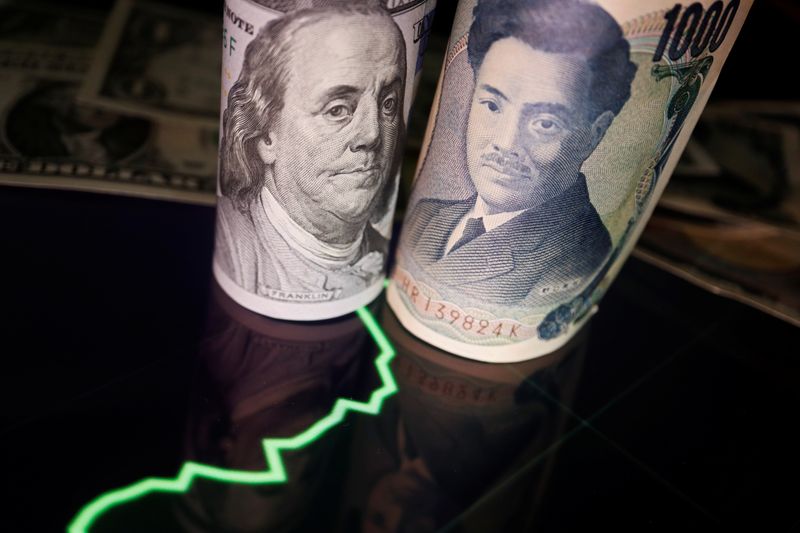Chuck Mikolajczak
NEW YORK (Reuters) – The U.S. dollar rose for a third straight session on Thursday as Treasury yields fell but remained elevated on concerns over tariffs under the new Trump administration, while recent weakness in sterling persisted.
U.S. Treasury yields are trending higher, with the benchmark 10-year note hitting an 8-1/2-month high of 4.73% on Wednesday, as a robust economy and likely tariffs reignited concerns about inflation and increased expectations that the Federal Reserve will take a slower path to lowering interest rates.
Recent economic data showed the job market was on solid footing, and minutes from the Federal Reserve’s December meeting showed policymakers raised fresh concerns about inflation, suggesting the new administration’s plans could slow economic growth and increase unemployment.
Investors will be watching Friday’s key government payroll report to gauge how aggressively the central bank will cut interest rates.
“Most of the economic data coming in have been a little better than expected, so if we get better-than-expected nonfarm payrolls data tomorrow, that’s another indicator that the economy is not cooling and that inflation will rise.” more pressure,” said Joseph Trevisani, senior analyst at FX Street in New York.
“We’re also going to get a Trump administration that’s going to change a lot of things,” Trevisani added.
The index, which measures the dollar against a basket of currencies, rose 0.15% to 109.18, the euro fell 0.2% to $1.0297.
Boston Fed President Susan Collins said Thursday that significant uncertainty about the outlook requires the central bank to move cautiously toward future rate cuts, while Philadelphia Fed President Patrick Harker said he still expects rate cuts, but any imminent rate cut is unnecessary amid significant uncertainty about the economic outlook.
Sterling weakened 0.53% to $1.2296, heading for a third straight session of declines after hitting its lowest level since November 13, 2023, with Britain’s finance minister under pressure as concerns over Trump’s policies pushed up Britain’s borrowing costs. government.
The Japanese yen strengthened 0.27% to 157.93 per dollar. Government data on Thursday showed Japan’s inflation-adjusted real wages fell for a fourth straight month in November, held down by rising prices even as basic wages rose at the fastest pace in more than three decades.

Goldman Sachs analysts believe discussions at the January branch managers’ meeting support their view of the Bank of Japan’s January rate hike.
The US stock market was closed on Thursday. US bond markets were poised for an early shutdown following the funeral of former President Jimmy Carter (NYSE:).


